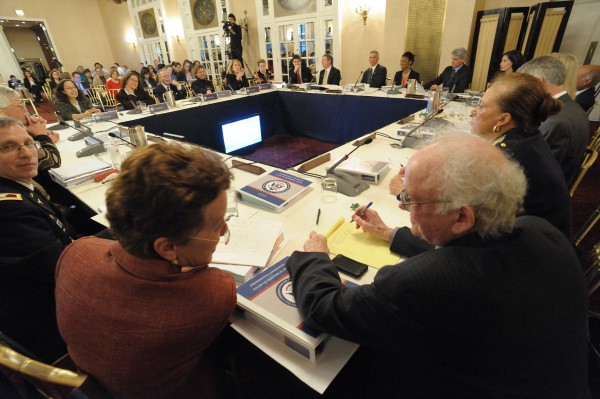Bioethical Expertise and Government
Main Article Content
Abstract
In a new paper published by Dr. Annabelle Littoz-Monnet, an associate professor of political science at the Graduate Institute of International and Development Studies in Geneva, she asks whether government bioethics experts bolster or inhibit democratic control of policy. To answer this, she cites the European Group on Ethics in Science and New Technologies’ (EGE) role in the European Union’s early-2000s debate on whether to fund human embryotic stem cell research. Drawing upon news articles, reports, and personal interviews, Dr. Littoz-Monnet observes that when the debate reached a stalemate, the European Commission (the EU’s executive body) sought out the EGE’s recommendations. What followed was the use of the EGE as a means for “control[ling] the policy process despite the presence of a salient and publicly debated conflict (17, italics in original).
Although the case study is itself interesting, the value of Dr. Littoz-Monnet’s paper lies in her broader conclusions. In particular, there has been an effort to elevate ethical expertise to the same domain as scientific expertise. Such conflation is problematic, though, as one field is inherently normative where the other is descriptive. Doing this gives decision-makers – in this case those within a governmental institution – “a crucial means of orienting political action while keeping the appearance of the rational, apolitical character of their actions” (4). To put it differently, by appealing to a committee’s bioethical expertise the same way one would appeal to, say, a climate panel, one obscures the definition of “expertise” and denies the role of ideology in bioethics.
Far from being neutral, governmental institutions “have an incentive to preserve the erosion of the technocratic domain, and ethics experts … provide them with a crucial governance tool,” one that “engender[s] consent and legitimacy for the development of biotechnologies” (17). By claiming to be apolitical, objective, and holding the moral high-ground, one sets the perimeters of debate and the window of acceptable actions. For a nondemocratic institution to do this stifles what could be legitimate, democratic discourse and hides “whose ethics and whose values prevail in … politics” (17). In this way, even though governmental bioethics committees have social, philosophical value, they are, like any committee, instruments. This can lead to some disheartening predictions.
Because controversial bioethics issues stem from conflicting hard values and interests between both individuals and institutions, one may expect bioethical expertise to be appealed to in those instances where deliberation most jeopardizes these interests. In contrast:
one would expect ethical expertise to not be mobilized when value-based issues are not the object of a publicly debated controversy (either when a broadly accepted normative framework is in place or when no stakeholder considers the issue at stake to be threatening its position or values) (6).
This strategic use of expertise means that challenges to the established consensus are likely to go unheard and unaddressed. As long as there are “certain ethical positions [held] as apolitical ‘truths’ that do not need to be questioned and submitted to contested, democratic decision making,” this will be a stumbling block for reformers (17). Bioethics committees can guide the flow but not redirect the torrents – even if they are man-made and heading right toward the city.
Even though Dr. Littoz-Monnet’s paper focuses on the European system, which is institutionally and demographically dissimilar from that of the United States, her warnings are universal. As the University of Pennsylvania neuroethicist Dr. Jonathan D. Moreno notes in Progress in Bioethics: Science, Policy, and Politics, much changed with the collapse of “The Great Bioethics Compromise.” By this Dr. Moreno means the “academic politeness within the small fraternity of bioethicists” in the 1980s and 1990s (xviii). As it dissolved, so too did the ideological détente in bioethics. President George W. Bush’s Council on Bioethics was especially guilty of this as his appointments included such “experts” as a conservative newspaper columnist and several young scholars from conservative think tanks. Of the latter, Dr. Moreno writes, it was a community of political philosophers who “came to Washington with more than just an ideology … they came with an agenda” (xviii). Coincidentally, this shift in the United States coincided with the debate over stem cell research in the European Union.
It should be added that this is not an attack on bioethics as a field of study for it is undeniable that any community with scientific aspirations must continue to develop its moral compass. Still, this does not mean philosophy happens in a vacuum. The moral component at the heart of the major bioethical issues of the 21st century – from health care to human cloning – makes them inherently contentious as it is these values that most often define us. Therefore, it should be unsurprising that some would seek to establish the borders of debate and thus the range of acceptable values. When the stakes are so high, this, which plays out in all policy, is as exclusionary as it is natural.
Yet, as they say, nature is what we’re here to rise above.

